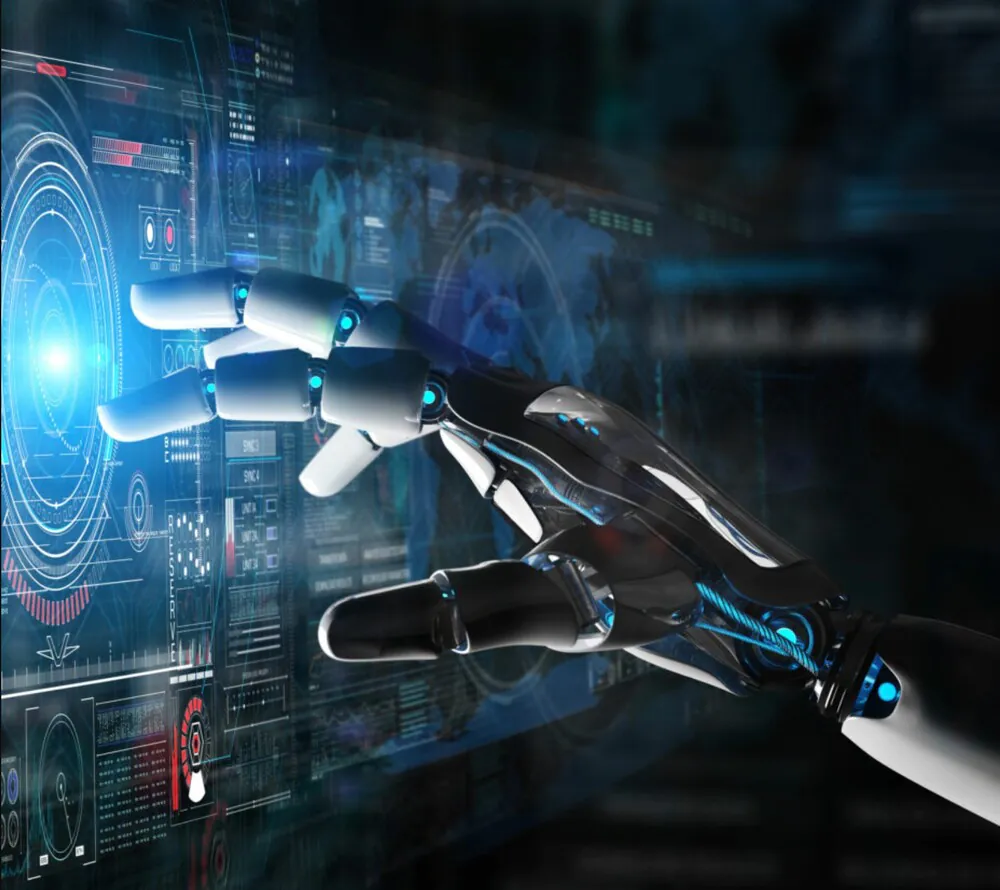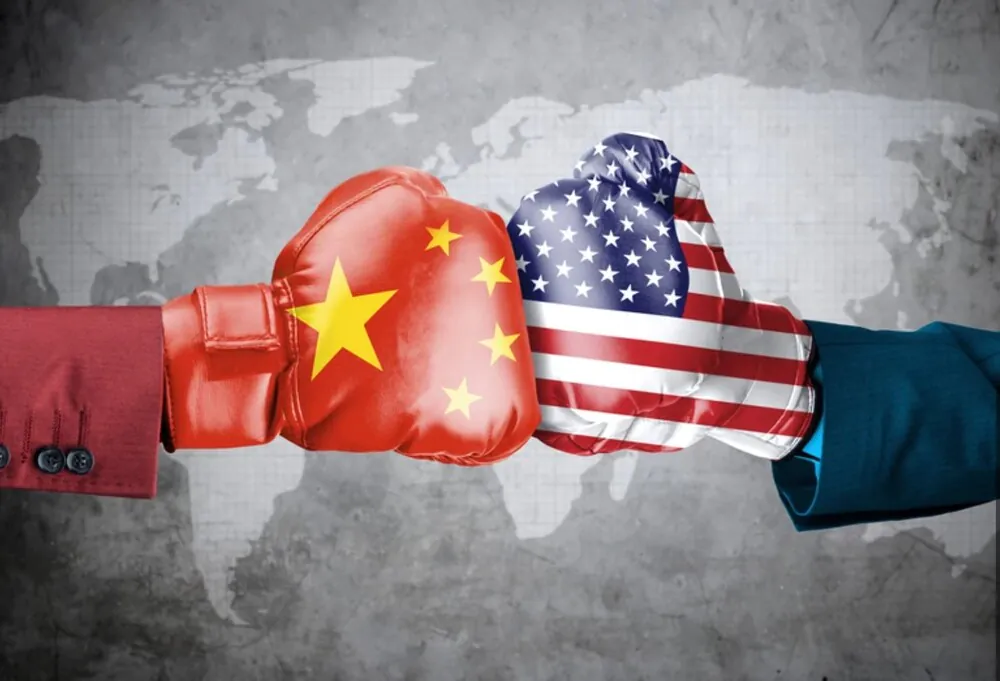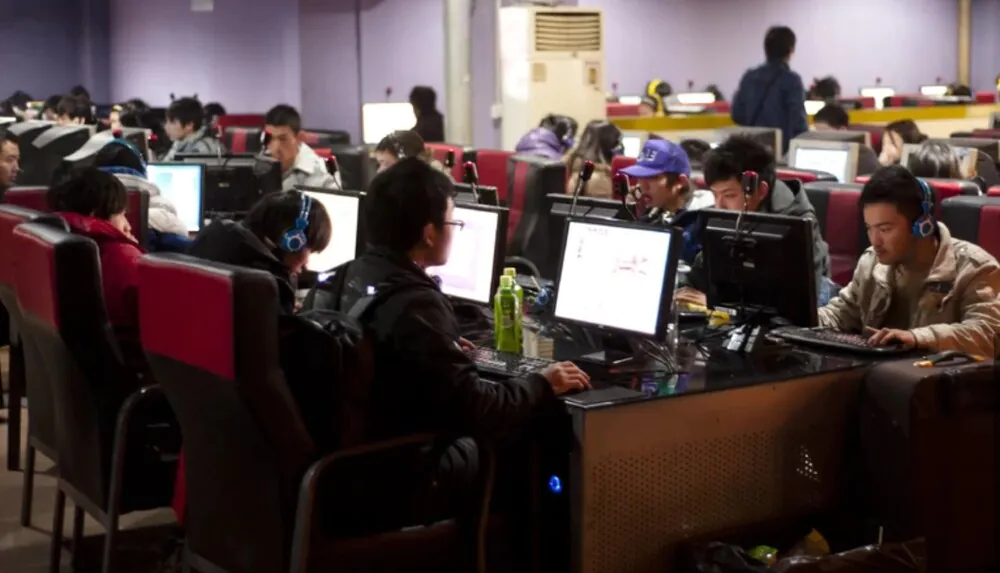© ROOT-NATION.com - Use of content is permitted with a backlink.
Recently, artificial intelligence has been called the new atomic bomb of the 21st century. Let’s find out who is leading the race.
The creation of the first atomic bomb changed the face of the world. This powerful weapon has become a guarantee of security for the states that possess it, and at the same time a factor that maintains relative peace between the largest powers. However, another factor has emerged that can work quite differently. The most advanced models of artificial intelligence will give their owners a huge military, economic, and technological advantage. After all, technologies that are already changing the face of many sectors of the economy may become the main tool of influence for global powers in the future. Whoever controls the most advanced models of artificial intelligence will have a huge advantage in many areas.

I am sure that most of you have often asked yourself the question: “Who is developing AI the fastest now?”
Read also: 7 coolest ways to use ChatGPT
AI will decide which company will become the new Apple
Even a still weak artificial intelligence that has no consciousness and performs only strictly defined tasks can provide a huge military, economic or technological advantage. It can manage the economy better than an army of the best economists, analyse intelligence data better than the CIA, and plan military operations more effectively than the best commanders. In other words, the development of artificial intelligence will have a significant impact on human performance. Most experts and journalists say that the AI race will also determine who will take the place of Google, Amazon, and Apple in 2030.

But most importantly, countries that lag behind in the adoption of AI algorithms will significantly reduce their share in many industries, from finance to manufacturing and mining. On the other hand, countries that underinvest in AI research and development, especially for military purposes, expose their national security to serious risks.
Read also: Russian hackers are trying to use ChatGPT for cybercrimes
Clash of the titans
It is no surprise that the world’s two largest powers are spending huge amounts of money on AI development. Everyone knows that losing this race can be very costly. The leaders in the development of artificial intelligence are, of course, the United States and China. But who has the best chance of winning? The answer to this question is not simple.

In 2019, Center for Data Innovation published a report comparing the potential of the United States, China, and the European Union in the field of artificial intelligence. It analysed such categories as people, research, development, implementation, equipment, and data. The United States took the top spot. The Americans had the largest number of scientists, conducted the most research, published the most scientific papers, and had the most advanced equipment. The European Union came second in almost all of these categories. What is China’s best at? Researchers say that in terms of data volume and the pace of artificial intelligence adoption, companies from the Middle Kingdom are unrivalled.
The US remains the leader
The United States has been a leader in the development of artificial intelligence for many years. Many factors contribute to this. They attract the most talented researchers from all over the world, and American companies invest the most in the development of this technology. Back in 2012, Google won an auction organised by British scientist Geoffrey Hinton. He is considered to be the father of machine learning, which is the basis for modern artificial intelligence models. And the subject of this auction… was Geoffrey Hinton himself. An American company paid $44 million to hire this scientist and his two assistants. The auction could have lasted much longer, as China’s Baidu offered higher amounts, but the British did not agree to work in the Middle Kingdom.

Two years later, Google also acquired DeepMind, the British company behind AplhaGo AI, which was the first to beat a professional go player. Another American company, OpenAI, offers its innovative ChatGPT, which is rapidly gaining popularity. Microsoft has recently invested $10 billion in its further development, which aims to end the period of dominance of the Google search engine on the Internet.
Americans are also leading the way in the production of equipment needed to run artificial intelligence models. It is American companies that create the most advanced processors and video cards, and they own a significant part of the technology required for the production of semiconductors. Artificial intelligence is one of the reasons why President Joe Biden is trying to slow down the development of Chinese chip companies at all costs.
Read also: ChatGPT: Simple instructions for use
The Chinese dragon is getting stronger thanks to its citizens
Although the United States is the leader in the development of artificial intelligence, the advantage is not yet absolute. China has many tricks up its sleeve. First, it is the world’s second most populous country with over a billion citizens. This is of great importance, as data is one of the most important resources for the development of modern artificial intelligence models. China not only has a huge number of people, but also collects the most information about them.
In Western countries, citizens’ privacy has suffered greatly in recent years, and many people disagree with excessive surveillance. In China, this is not a problem. There is greater public acceptance of data collection, so it is much easier for a totalitarian government to impose unpopular practices on the population. China, for example, has had a social trust system for years, which awards or deducts points for good or bad behaviour, and then, based on these points, it is possible to restrict citizens’ access to certain services.

In addition, China is implementing new AI solutions much faster. Competition in the Chinese market is so strong that companies have to act very quickly to stay ahead of the competition. And citizens, in turn, accept new solutions much faster. Almost everyone in China already pays using the WeChat mobile app, and even public toilets that use facial recognition are no longer a novelty. In some countries, however, it is still not possible to pay with a payment card everywhere, let alone with contactless payments.
China is also rapidly catching up with the US in other categories. The aforementioned report was made quite a while ago, in 2019. The latest reports show that China has already overtaken the Americans in terms of the number of published scientific papers on artificial intelligence. In 2022, the Chinese published three times as many scientific papers as the US. The most cited publications in China contain twice as many articles on the development and implementation of artificial intelligence algorithms.
Outstanding professionals can save Europe
In this text, we have focused primarily on China and the United States, but it should be remembered that the chances for the European Union are not yet lost. Experts believe that Europe lacks equipment, a comprehensive data set and large investments. In addition, there are slightly fewer specialists in this field in Europe than in the United States. There is another unpleasant nuance.

Often, Americans simply buy European companies and recruit European researchers to their universities. The EU needs more cooperation between companies, a common data management policy, more investment, and common goals in the field of AI research.
Read also: Ways Bitcoin is Recuperating the Planet
Everyone can win and lose
The race to create the most advanced and efficient artificial intelligence is just beginning, and its outcome could shape the global order for decades to come. At the same time, it’s worth remembering that in some areas, this is not a zero-sum game.
Other countries are also developing artificial intelligence, mostly in universities, thus helping the entire artificial intelligence ecosystem. Many of the advances in AI, such as those related to healthcare, the environment, and education, can benefit all countries. Perhaps the leaders in this field will benefit the most from the development of artificial intelligence, but its development can help improve living conditions around the world, only the right decisions are needed. Unfortunately, artificial intelligence can also lead us to a world full of chaos and even greater inequality. These are the times and challenges.
Read also:
- What is a deepfake, why is it dangerous and how to recognize it
- All about the UFS 4.0 memory type: how it is better than previous versions


It’s becoming clear that with all the brain and consciousness theories out there, the proof will be in the pudding. By this I mean, can any particular theory be used to create a human adult level conscious machine. My bet is on the late Gerald Edelman’s Extended Theory of Neuronal Group Selection. The lead group in robotics based on this theory is the Neurorobotics Lab at UC at Irvine. Dr. Edelman distinguished between primary consciousness, which came first in evolution, and that humans share with other conscious animals, and higher order consciousness, which came to only humans with the acquisition of language. A machine with primary consciousness will probably have to come first.
What I find special about the TNGS is the Darwin series of automata created at the Neurosciences Institute by Dr. Edelman and his colleagues in the 1990’s and 2000’s. These machines perform in the real world, not in a restricted simulated world, and display convincing physical behavior indicative of higher psychological functions necessary for consciousness, such as perceptual categorization, memory, and learning. They are based on realistic models of the parts of the biological brain that the theory claims subserve these functions. The extended TNGS allows for the emergence of consciousness based only on further evolutionary development of the brain areas responsible for these functions, in a parsimonious way. No other research I’ve encountered is anywhere near as convincing.
I post because on almost every video and article about the brain and consciousness that I encounter, the attitude seems to be that we still know next to nothing about how the brain and consciousness work; that there’s lots of data but no unifying theory. I believe the extended TNGS is that theory. My motivation is to keep that theory in front of the public. And obviously, I consider it the route to a truly conscious machine, primary and higher-order.
My advice to people who want to create a conscious machine is to seriously ground themselves in the extended TNGS and the Darwin automata first, and proceed from there, by applying to Jeff Krichmar’s lab at UC Irvine, possibly. Dr. Edelman’s roadmap to a conscious machine is at https://arxiv.org/abs/2105.10461